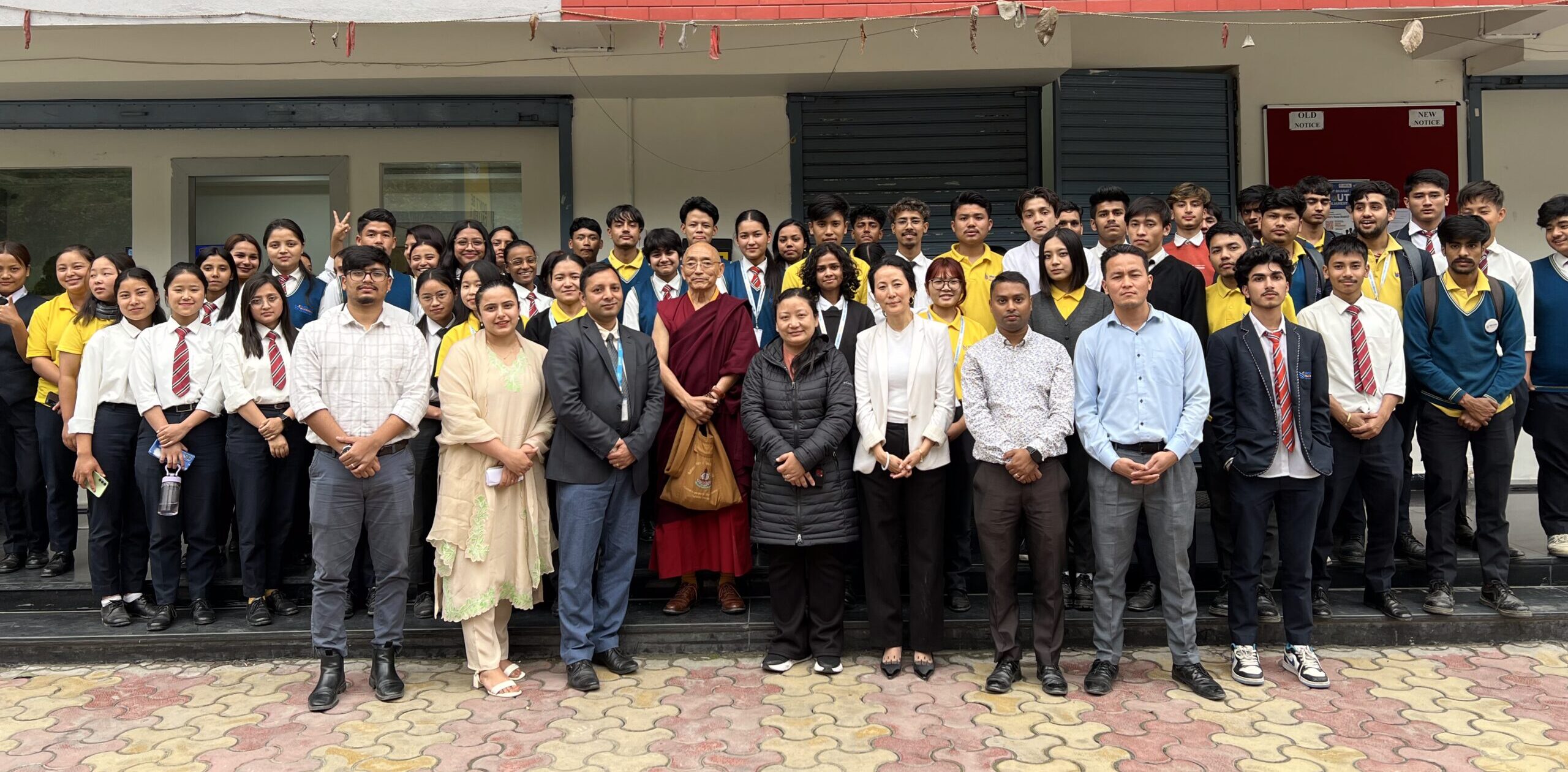On the 20th of March 2025, 108 Peace Institute, in partnership with the Medhavi Skills University, hosted an enlightening session of the ongoing 108 Peace Institute Lecture Series, centered on the timely and transformative theme: “Compassionate Leadership in the 21st Century for Global Peace.”
The event brought together an audience of 96 attendees, including faculty members and students. Set against the serene landscape of Sikkim, the gathering was a testament to the growing interest in value-based leadership and the longing for a world governed not by power or profit, but by wisdom, compassion, and collective well-being.
The session was graced by the presence of Padma Shri. Venerable Ngawang Samten, a Buddhist scholar, translator, and educator known for his lifelong dedication to preserving and sharing the profound teachings of Indian and Tibetan Buddhist philosophy. With humility and clarity, Venerable Samten offered a deeply moving reflection on the concept of compassionate leadership, explaining how it is rooted not in external authority but in inner transformation and ethical awareness.
He emphasized that true leadership today must transcend borders, belief systems, and political ideologies, and must instead be guided by a sincere concern for the welfare of others. A compassionate leader is far-sighted and aims to bring peace and harmony to their community, country, and world at large. In a world facing complex challenges, what we need most are leaders who feel deeply, think wisely, and act selflessly.
“Among your friends, if you are compassionate to each other, you will attract more friends, develop a healthy competition, and ultimately create a supportive learning environment. Whereas anger and hatred create a negative learning atmosphere, preventing the exchange of ideas with your friends and leading to unhealthy competition ”, he said, his words resonating deeply with the young minds and educators in the hall.
Throughout the talk, Venerable Samten also touched on Buddhist philosophy of science of mind and shared that mental transformation is achievable through mind training, using the technique of emotional regulation. Our happiness is dependent on how we regulate our emotions- reducing destructive emotions and enhancing the constructive ones, said the lecturer. He also encouraged participants to reflect not only on how we lead others, but how we lead ourselves, with mindfulness, integrity, and a sense of shared humanity.
He reminded everyone that compassion is not limited to religious or spiritual life, but is a universal value that can inform policies, education, business, and even technological development. It is a way of being that opens the door to peace, not just in society, but within ourselves. His vision was clear and uplifting: a more peaceful and happy world is not only possible but necessary, and it begins with compassionate leadership at every level of life.
The lecture was followed by a lively Q&A session where students and faculty asked thought-provoking questions. The discussions involved how young people can develop compassion while pursuing professional success, while faculty members asked how they can guide their students in regulating their emotions.
The attendees expressed how the lecture left a lasting impact on their minds, especially in understanding that leadership is not about titles or status, but about serving the greater good with kindness, concern, and responsibility.
As the 108 Peace Institute continues this lecture series across educational institutions, the institute’s mission remains firm: to create spaces for meaningful dialogue, ethical reflection, and the nurturing of a new generation of compassionate leaders who will shape a more inclusive, peaceful, and joyful world.
